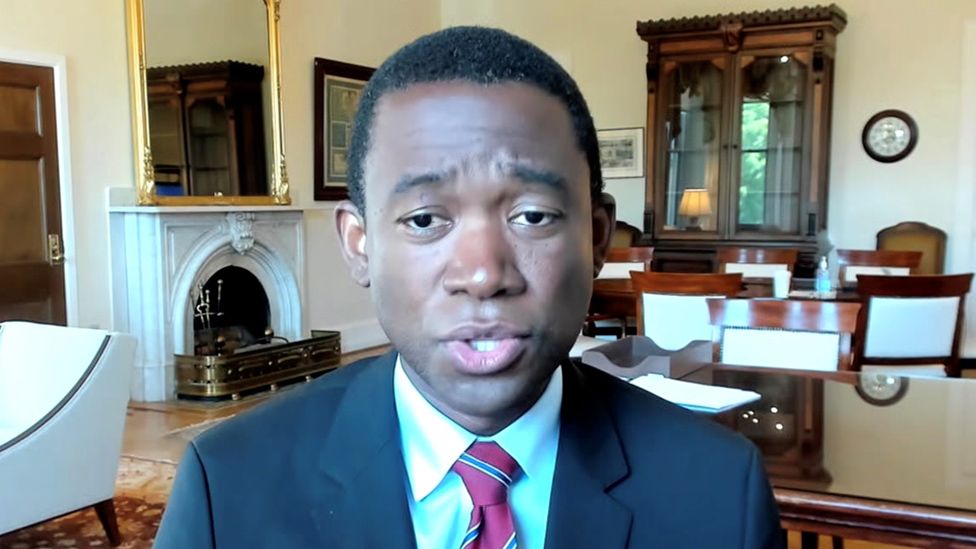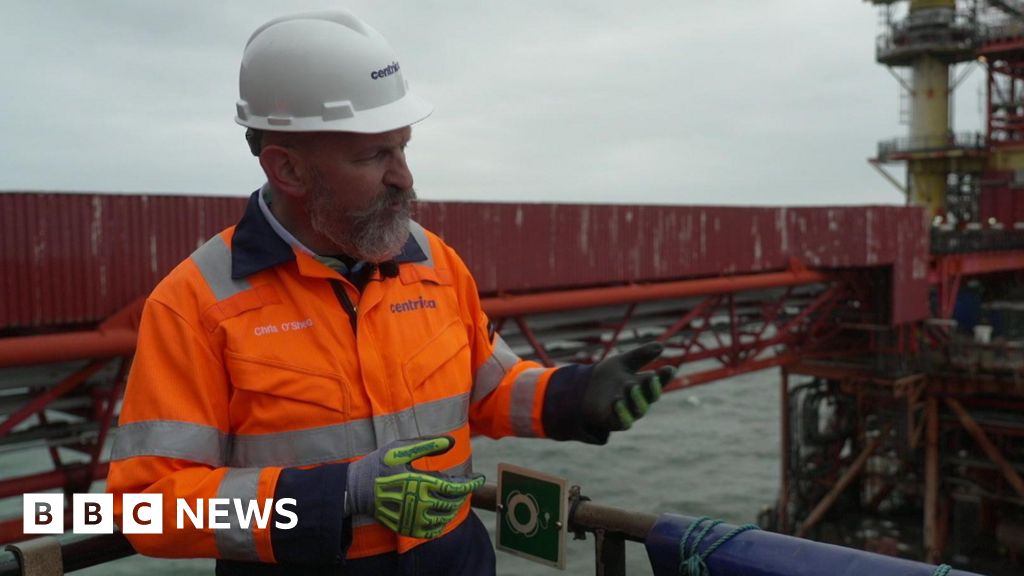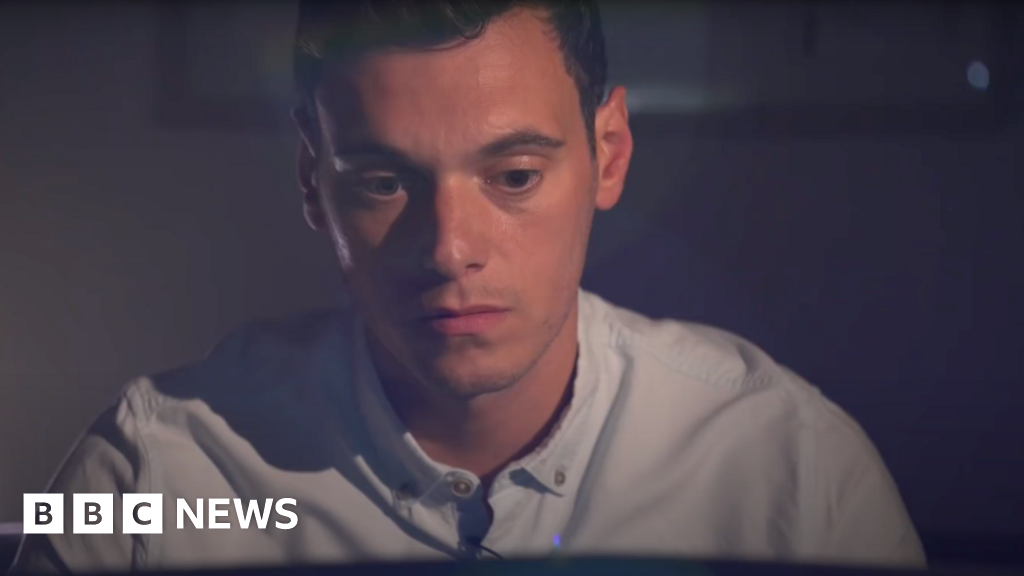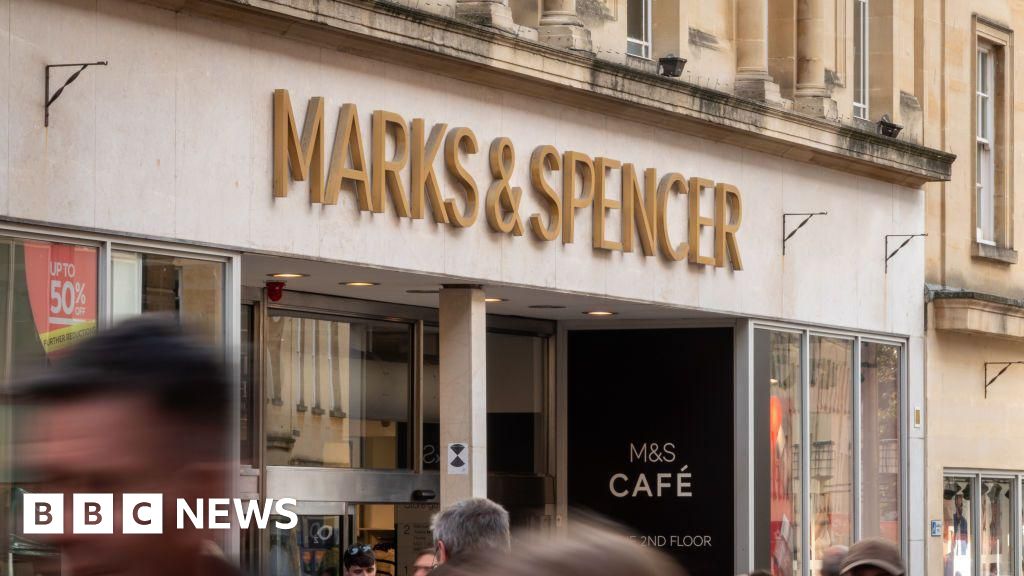ARTICLE AD BOX

By Faisal Islam & Karen Hoggan
BBC News
The White House has denied starting a subsidy war, following criticism of its massive support for green energy.
The US is spending billions to help electric car firms, green energy and microchips via loans and tax breaks.
Deputy Treasury Secretary Wally Adeyemo said the US wanted other countries to make similar investments and co-operate against climate change.
Manufacturer Unipart, which is set to invest in the US, says the UK cannot "compete on a level playing field".
The US subsidies were "chilling" for UK electric vehicle production, John Neil, who runs the car parts and logistics firm said.
But Mr Adeyemo told the BBC: "I don't accept that criticism, because ultimately, what we want to do is see other countries make the type of investments we've made in clean energy in their countries as well."
The US support scheme known as the Inflation Reduction Act (IRA) was passed last year.
Asked if the aim was to incentivise factories and jobs to divert to the US from Europe and the UK, Mr Adeyemo said: "No, I don't think that ultimately you're going to see this as 'chilling' in the EV supply chain.
"It's going to be additive, because... you're going to have many more consumers in the United States."
'Distortive subsidy race'
The EU has already formulated its response to the IRA - a Net Zero Industry Act to increase its subsidies for green industry - fast-tracking existing multibillion incentives, and it will soon loosen strict laws on subsidising industry to allow even more.
But the UK Chancellor Jeremy Hunt has dismissed the prospect of getting involved in "some distortive global subsidy race".
The UK has so far struggled to establish mass domestic production of batteries for electric vehicles.
Earlier this year, one senior figure in the motor industry warned the UK's car sector could disappear unless the government followed the US and EU in helping with the switch to electric.
But, writing in The Times last month, Mr Hunt said the UK would not go "toe-to-toe" with the US and EU on green subsidies.
"Our approach will be different - and better," Mr Hunt wrote. "With the threat of protectionism creeping its way back into the world economy, the long-term solution is not subsidy but security."
Image source, Getty Images
In his interview with the BBC, Mr Adeyemo picked up on the concept of "friendshoring", previously talked about by the US Treasury Secretary Janet Yellen.
The idea here is that friendly, trusted nations co-operate, manufacturing goods and sourcing from each other, forming one big supply chain and reducing reliance on China.
"When it comes to countries like China, you're right that they have a dominant position when it comes to the clean energy supply chain today," said Mr Adeyemo. "A number of the critical minerals that are key to building renewable energy are mainly sourced by Chinese companies today.
"And what we want to do is compete with those companies. And to compete in a way that means that we will have a resilient supply chain that doesn't only rely on one country, but relies on several countries."
He added: "Hopefully those countries will include our allies and partners in order to make sure that our companies have access to the critical minerals they'll need going into the future."
'Non-discriminatory'
Mr Adeyemo played down the "Made in America" part of the IRA plan. With regards to electric cars this means that if all or virtually all of the vehicle has been made in America then customers qualify for a tax credit to buy it.
This has attracted concern from the EU, but Mr Adeyemo said it was only a "small element" of the plan
The EU Trade Commissioner Valdis Dombrovskis told the BBC he hoped a trade war over this issue could be avoided. "It's something which we are trying to avoid from the EU side because subsidy wars tend to be expensive and inefficient."
He said the EU was "not against provision of domestic support for greening of the economy. Indeed, we're providing also support of our own".
Where there was a problem, he said, was the issue of the US giving preference to vehicles wholly or largely made in the US "so discriminating against other producers".
"Many EU member states also have subsidy schemes for electric vehicles, but they are non-discriminatory, so a customer can buy Tesla Made in USA and still get a subsidy."
Japan has already agreed a focussed agreement to help alleviate some of these concerns, and the EU and UK are in some negotiations.
So do IRA and other green subsidies represent a completely different form of US economic policy, which could fundamentally change the world economy?
"We all fundamentally know that in order for us to deal with the existential threat of climate change, we need to change the way that the economy is run and make it run more on renewable energy. And that's exactly what we're doing here," said Mr Adeyemo.

 2 years ago
38
2 years ago
38








 English (US) ·
English (US) ·